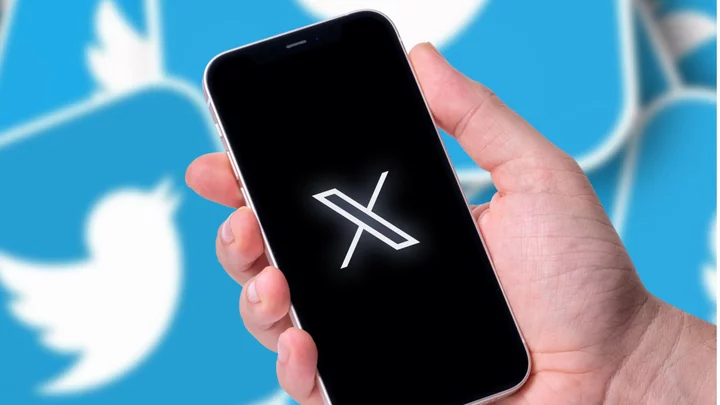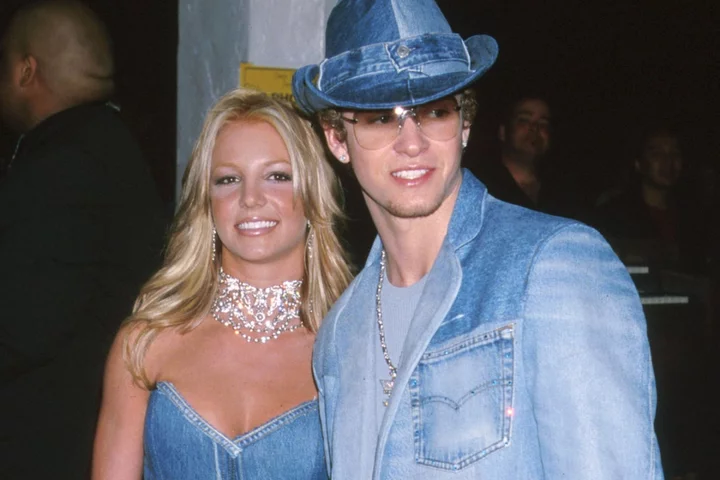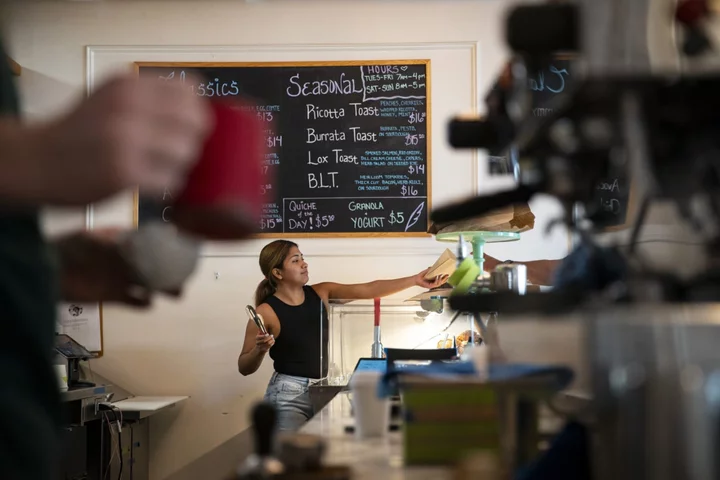BUDAPEST, Hungary (AP) — Olympic gold medalist Tori Bowie’s autopsy included an easy-to-overlook, one-line notation beneath the heading “Medical History:” Bipolar disorder.
Around track circles, where the champion sprinter’s absence is hitting particularly hard heading into Saturday’s opening in Hungary of the first world championships since her death, Bowie’s mental health struggles were more than an afterthought.
They were a stark reality during training over the years. They also revealed themselves in the Florida neighborhood where police found her body days after the 32-year-old, who was eight months pregnant, died due to what the coroner said were complications of childbirth.
“It’s not that she slipped through the cracks,” her one-time coach, Al Joyner, told The Associated Press. “I think people didn’t take it seriously enough.”
Bipolar disorder, a mental-health condition that causes extreme mood swings, can be treatable with medication and counseling. However, t he National Institute of Mental Health cites studies that say that of the some 4.4% of U.S. adults who experience the disorder, 82.9% encounter “serious impairment.”
Though Bowie had access to mental-health services through the U.S. Olympic and Paralympic Committee and USA Track and Field, officials at both organizations said she did not avail herself of those in the weeks before her April 23 death.
The officials said they believe Bowie’s mental health played a role in how she handled what became an increasingly difficult pregnancy, one she dealt with without much assistance from friends, family or medical professionals.
The AP spoke with Joyner as well as six other USA track and Olympic officials or team members, and reviewed autopsy and police records, including a 911 call from a family acquaintance asked to check on Bowie at her house after no one heard from her in days.
“Last time I spoke to this girl, it was over three weeks ago. I saw her here at her home and she was living without power,” said the acquaintance, whose name is redacted from the 911 recording. “I reported to her family that I was concerned about her mental health.”
There were other red flags.
Neighbors saw Bowie sleeping on the floor at a local recreation center and sleeping on a bench at a park near her house. They spoke on condition of anonymity to reveal the disturbing details.
One neighbor called the U.S. Olympic committee with their concerns and the committee notified USA Track and Field, which reached out to Bowie’s agent, Kimberly Holland.
Holland told the AP this month that Bowie had access to health care. “I didn’t have any red flags,” she told The Washington Post in June.
Police went to Bowie’s house on May 2 after receiving the 911 call from the acquaintance, who said she didn’t feel safe entering because of the smell emanating from the residence.
Earlier this month, a lawsuit filed seeking foreclosure on Bowie’s Winter Garden, Florida, house said she had been delinquent on payments since Oct. 1, 2022, seven months before her death.
An autopsy indicated no signs of foul play or drug use. Bowie’s bipolar disorder didn’t make many headlines, nor did her weight: 96 pounds, at eight months pregnant. In her heyday, the 5-foot-9 sprinter was a wall of muscle and weighed 130.
More was made of complications related to childbirth: eclampsia, which results in seizures that can lead to coma and stems from high blood pressure during pregnancy.
According to the U.S. Centers for Disease Control, Black women are three times more likely to die from pregnancy-related issues than white women.
The news of her death hit hard around track-and-field circles.
“There’s just a very heavy sadness that I think everybody feels, like, ‘Wow, this could have been preventable,’” said retired decathlete Trey Hardee, who struggled with his own mental health issues.
Placed in a foster home as a baby, Bowie was taken in and raised by her grandmother in Sand Hill, Mississippi.
“It seemed like she was always out to prove something,” Joyner said. “It was never good enough. ... That’s a dangerous thing.”
Bowie showed great promise as a youngster and went on to Southern Miss, where she won the NCAA long jump title in 2011.
A few years later, she was among the top sprinters in the world. She won silver in the 100 and bronze in the 200 at the 2016 Rio Games, then capped it off by winning the relay gold.
But a 2018 Instagram post told a less glamorous story. Titled “The Cost of Success,” it contained this list: “1. Late Nights. 2. Early Mornings. 3. Very Few Friends. 4. Being Misunderstood. 5. Feeling Overwhelmed. 6. Questioning Your Sanity. 7. Being Your Own Cheerleader.” It concluded: “But Guess What? It Will Be Worth It.”
The post came six months after Bowie was involved in a February 2018 physical altercation with training partner Shaunae Miller-Uibo in Florida. Both sprinters were asked to seek psychological counseling.
Bowie left for the U.S. Olympic committee-run Elite Athlete Training Center in Chula Vista, California. But when she showed up to start the 2019 season, she was told she owed $6,000 — a bill she said she did not expect.
Bowie told FloTrack she lost trust in Joyner and agent Holland, neither of whom, she said, had her back in the money dispute.
Joyner conceded the rift splintered their relationship.
“At that time, me and Tori, we had a great relationship and it cost us that,” Joyner said. “She thought I was somewhere involved. ... It took her into a tailspin.”
Joyner’s sister, heptathlon and long-jump great Jackie Joyner-Kersee, discussed the implications of people falling out of touch — and said that’s why she always picks up the phone.
“I need to hear your voice,” Joyner-Kersee said. “Because you may text you’re doing good, but your voice may tell me something different.”
Until the last few years, the stigma attached to mental illness was so great that virtually no athlete would dare bring it up in public.
In the wake of sex-abuse scandals that rocked the Olympic world, along with the COVID-19 pandemic, the U.S. Olympic committee doubled down on mental-health services for athletes — adding doctors, hot lines, support groups, experts who travel with the teams and other resources.
Joyner said there was a time he thought Bowie had so much talent she would be among all-time greats like his sister, Joyner-Kersee, and his late wife, 100-meter world-record holder Florence Griffith-Joyner.
“Tori just loved trying to be the best. She was like a sponge,” Joyner said.
___
AP sports: https://apnews.com/sports









